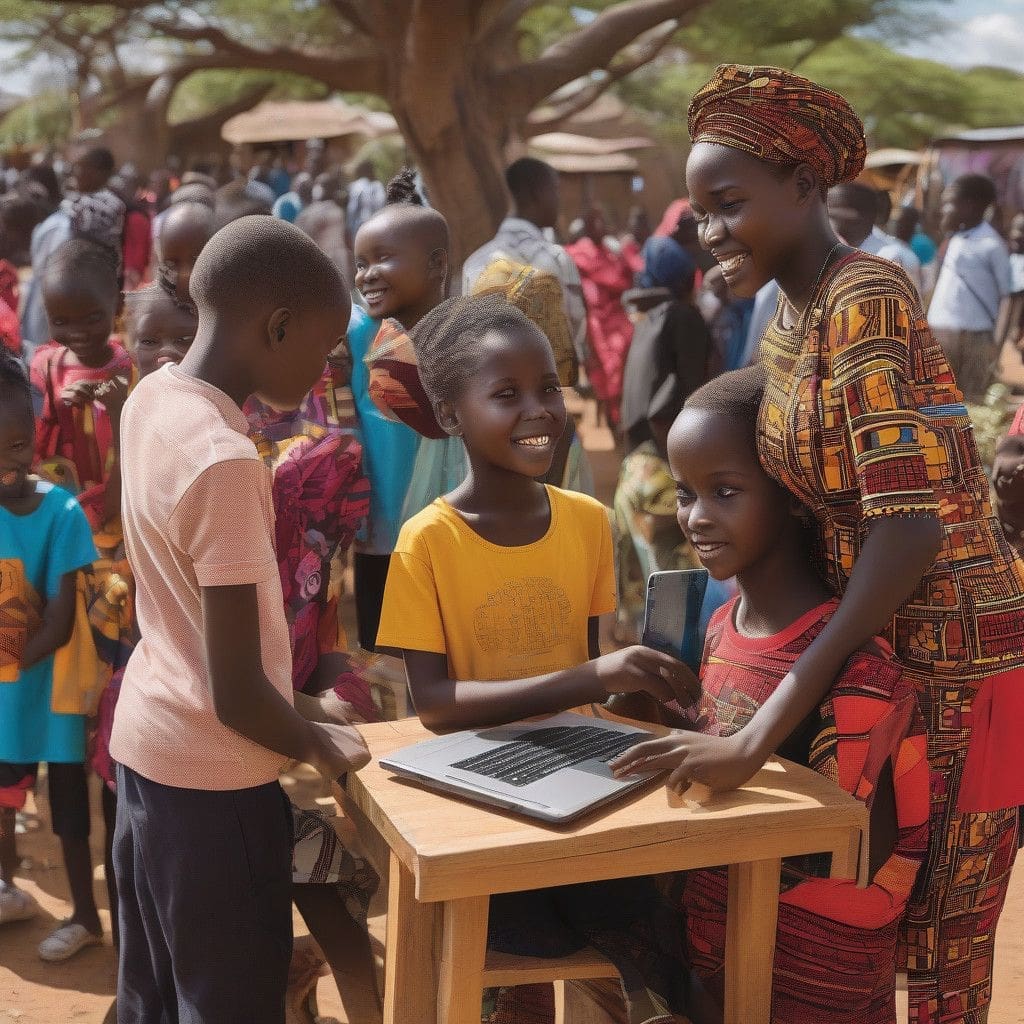The British High Commission in Kenya has initiated a significant project aimed at enhancing digital inclusivity throughout the nation. With a substantial investment of Sh390 million, the ‘Strengthening Digital Communities’ project targets vulnerable populations, including women, youth, senior citizens, and persons with disabilities (PWDs), focusing specifically on Busia and Mandera counties. This initiative aligns with Kenya’s ambitious goal to achieve 20 million digitally literate citizens by the year 2027.
At its core, this initiative is about closing the digital divide. In today’s world, digital literacy is not merely an asset but a necessity. The project aims to equip over 190,000 individuals with the critical digital skills required to thrive in an increasingly connected environment. By doing so, the British High Commission seeks not only to improve access to technology but also to enhance the overall quality of life for those involved.
The collaboration between the British High Commission and local organizations underscores the importance of community-driven efforts in achieving these goals. Partnering with KICTANet, the National Council of Persons with Disabilities, and the Kenya Society for the Blind, the initiative embodies a shared dedication to making digital resources more accessible. Such partnerships are vital for addressing the specific challenges faced by marginalized groups and ensuring that interventions are tailored to meet their unique needs.
A vital component of this project involves fostering digital employability among disadvantaged youth and women. Recognizing that access to information and technology alone is insufficient, the program will provide comprehensive training, mentorship, and resources to help participants secure sustainable employment opportunities. This approach directly ties into broader economic development efforts, enabling individuals to break the cycle of poverty by accessing better job prospects.
In addition to training and employment, the project places a strong emphasis on community engagement. Awareness campaigns will be conducted to educate participants about critical topics such as cyber hygiene and digital safety. The goal is to ensure that community members understand how to navigate the digital landscape securely, reinforcing the importance of protective measures against online threats.
One of the compelling aspects of this initiative is its potential for long-term impact. By investing in digital literacy and safety, the British High Commission is helping to build a more resilient society where individuals are not only consumers of digital content but also contributors to the digital economy. This aligns well with the broader push for sustainable development in Kenya, encouraging inclusive growth that benefits all segments of the population.
Success in such initiatives is often measurable, and the British High Commission’s project presents numerous opportunities for data collection and analysis. Tracking the progress of participants in terms of skill acquisition, employment rates, and community engagement can provide critical insights. Such information can be used not only to assess the initiative’s direct impact but also to inform future projects and strategies aimed at tackling digital inequality.
Good practices from similar projects worldwide can serve as benchmarks for this initiative. For instance, countries like Rwanda have successfully implemented digital skills programs that emphasize local partnerships and community involvement, resulting in higher engagement and sustainability rates. These examples provide valuable lessons in answering common questions: How do we ensure that digital skills training is effective? What strategies can be used to engage hard-to-reach populations?
In summary, the ‘Strengthening Digital Communities’ project by the British High Commission in Kenya marks an essential step toward bridging the digital divide in one of Africa’s emerging economies. It shows a compelling commitment to empower marginalized communities through technology. As we track the project’s development, it will be crucial to keep a close eye on its outcomes, both for participants and the wider community, as this could help shape future policies and projects aimed at enhancing digital access and inclusion.
